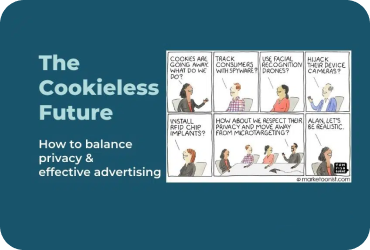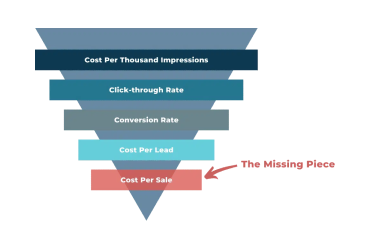Cookieless future

Cookieless future

Tracking sounds a little bit scary. Almost a bit like “stalking”. And in many ways, this is how tracking has worked until relatively recently. Dozens of third-party cookies that lasted forever have meant that both authorities and users have taken action in the name of privacy. “Privacy” has become an everyday expression. Authorities have given us, among other things, cookie consent, while users have used browsers that block third-party cookies. Last up was Apple, which through its OS updates helps users block “unnecessary” third-party cookies. Google has promised to phase out third-party cookies, but they seem to be somewhat delayed compared to their original schedule.
Third-party cookies are “unnecessary” for the user experience. However, on the other hand, they have been necessary for advertisers to be able to measure the effect of online advertising and optimize advertising costs. The more advertisers are able to optimize, the lower the price of products and services. Targeted advertising works the best!
This raises two questions; 1) how to balance between privacy and effective advertising and 2) are there alternatives to third-party cookies that respect users’ implicit or explicit desire for privacy? The first question has already been answered by GDPR and ePrivacy. There is no balancing act, only “privacy first”. The answer to the second question is yes. We have managed it, and certainly many others.
IF YOU HAVE CONSENT THEN IT IS LEGAL. HOWEVER, MOST PEOPLE DO NOT HAVE LEGAL CONSENT.
We see an industry that is slowly waking up to a new reality. Data that could previously be used to optimize advertising is disappearing. Not “slowly but surely” either, it is disappearing fast. It is understandable that you want to keep what you still have, and we actually have sympathy for adaptation through complicated cookie consent forms and lobbying. Other adaptations such as “fingerprinting” and “pixels” are worse cases that we fortunately see little of.
At the same time, one can be a little upset that the industry is not able to put this past them and move on. It is time to take for granted that users want privacy and adapt accordingly. How long should a car manufacturer optimize fossil engines before investing 100% in electricity?
For us, it has always been about a “privacy mindset”. The inspiration for Digger came at a web seminar in 2017, where a lawyer gave a talk on GDPR, privacy and cookies. We decided to create a tracking tool that does not use cookies and does not collect personal data. Believe it or not, it works like a dream. By the way, we would like to be able to call it “measurement” – it sounds nicer than “tracking” and agrees better with what we do.
Our tool is installed server-side and sets no cookies in order to deliver measurement of ad performance. We measure all data, and we give our customers a complete overview of the ads that work and those that do not. The latter is perhaps the most important. Installing a server-side is somewhat more complicated than continuing with cookie-based measurement, but what is really the alternative? Moreover, in a GDPR context, this exercise is perhaps the least laborious an organization must go through in order to become “compliant”.
It is difficult to predict, especially about the future. We still dare to make a prediction. It is not long before the “privacy mindset” becomes a “license to operate” in the same way as “sustainability”. We’re ready. Are you?
In our next reader post, we will write about the dangers of “posting” user data to Google Analytics in relation to GDPR. If no one comes to us in advance.



